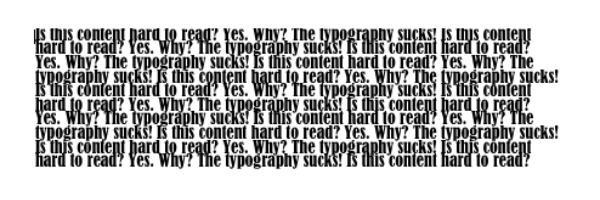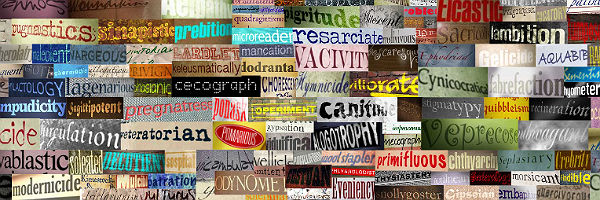
Where do common expressions in the English language come from?
Long before Internet memes and hashtags, there were spoken expressions that stood the test of time. Even the best copywriters fall victim to their seduction, citing writer’s block, lack of sleep or general laziness as culprits. Sadly, clichés, idioms and other common expressions often signify lack of creativity, which is not something any writer wants to portray.
Continue reading →

In their book “The Age of Persuasion: How Marketing Ate Our Culture,” advertising and marketing specialists Terry O’Reilly and Mike Tennant provide insight into the persuasive powers of language.
Continue reading →

Does your web copywriting alienate or embrace your target audiences? Tapping into the science of Neuro-Linguistic Programming (NLP) might provide you some insight and direction on what words to use in your marketing messages.
Continue reading →

“Something looks funny with the web copy…it looks really bad.” That was a part of the message we recently received form a client who was reviewing a design mock-up for his soon-to-be-launched website. “We really like the copy,” they had said just a few days earlier. So they liked what it stated, just not how it looked. The culprit: typography.
Continue reading →

Hysteria continues to grow since a news source reported Americans are collectively becoming paralyzed due to documents comprising “solid blocks of uninterrupted text.”
Continue reading →
Posted on Jan 25 2011 4:46 pm by Web Copywriters
tags: Web Content Studies Writing for the Web
|
category: Writing for the Web |
Leave a comment

Want to save a word from oblivion? Oxford Dictionary lets you adopt old or lost words to help keep them alive. The organization states that 90% of everything we write is communicated by only 7,000 words, and each year hundreds of words are being dropped from the English language.
Continue reading →

Recently, 52 Weeks of UX posted an article that challenged a commonly held opinion regarding web content — that it should be as concise and simple as possible in order to appeal to the average web user, whose attention span online doesn’t often creep past a few seconds. The popular theory goes, that if you don’t deliver the pertinent facts quickly, your website visitors will get frustrated and go elsewhere to find the information they desire.
In response to the point that web copy should be brief, the article’s author, Joshua Porter, stated: “There are several problems with this assumption, however. First, people do actually read on the Web…scanning is simply the first step in the process. Second, short text can be just as poorly written as long text (and often is). Third, people actually seek out and enjoy reading longer texts.“
Here are the author’s points supporting this statement, and our take:
Continue reading →

As a fellow web marketing professional — whether you’re a web copywriter, web designer, web developer, or a business owner interested in learning about the best way to market your business online — I’m sure you follow a plethora of like-minded people on Twitter.
You’ve probably also noticed a pattern in the kind of headlines that enter your feed, some at a more irritating frequency than others. These headlines purposely target high pressure points, and get incessantly regurgitated as a result.
Here’s how to recognize these repeat offenders and why you’d be better off to spend your clicks elsewhere.
Continue reading →

Most web copywriters argue that web copy should be more direct and conversational than most print materials; but how can you adopt this tone without compromising your brand identity? With a few rules and techniques you can set a tone that is appropriate for the web while respecting your brand.
Continue reading →














